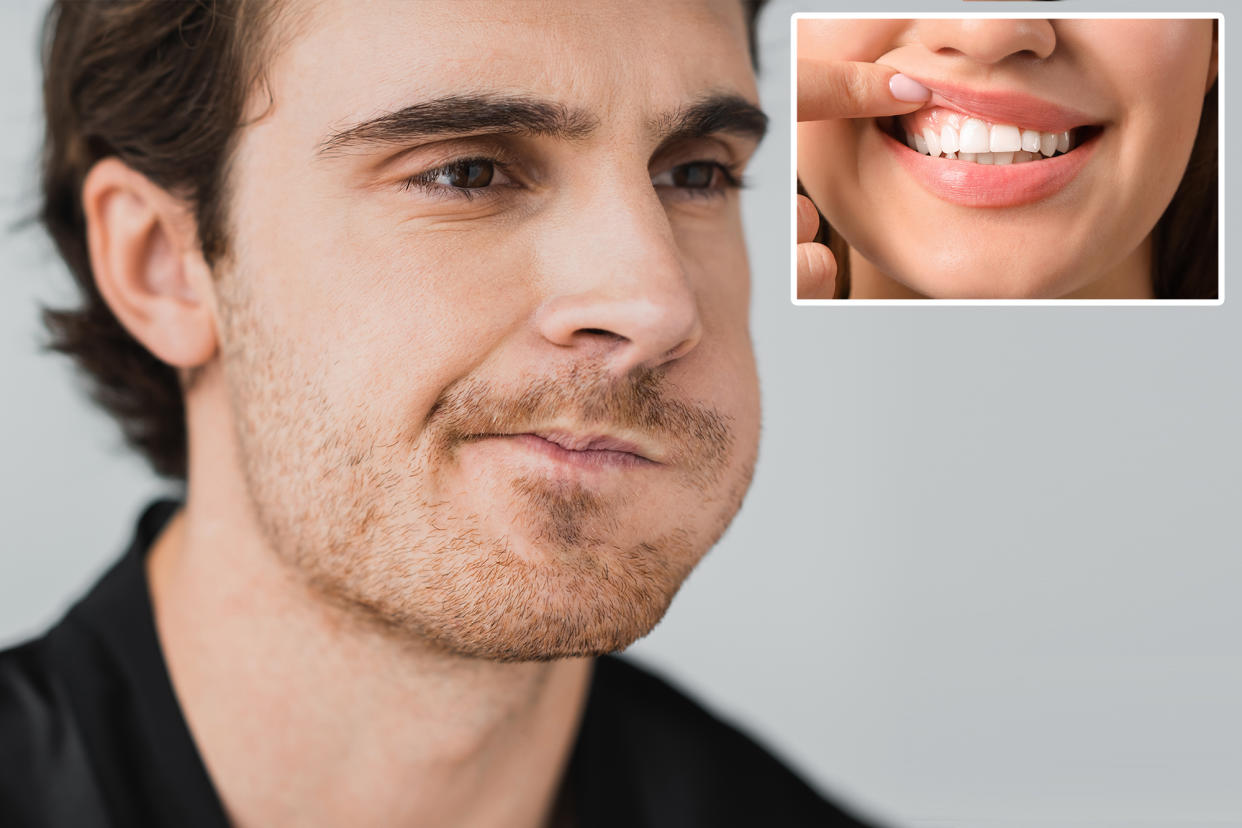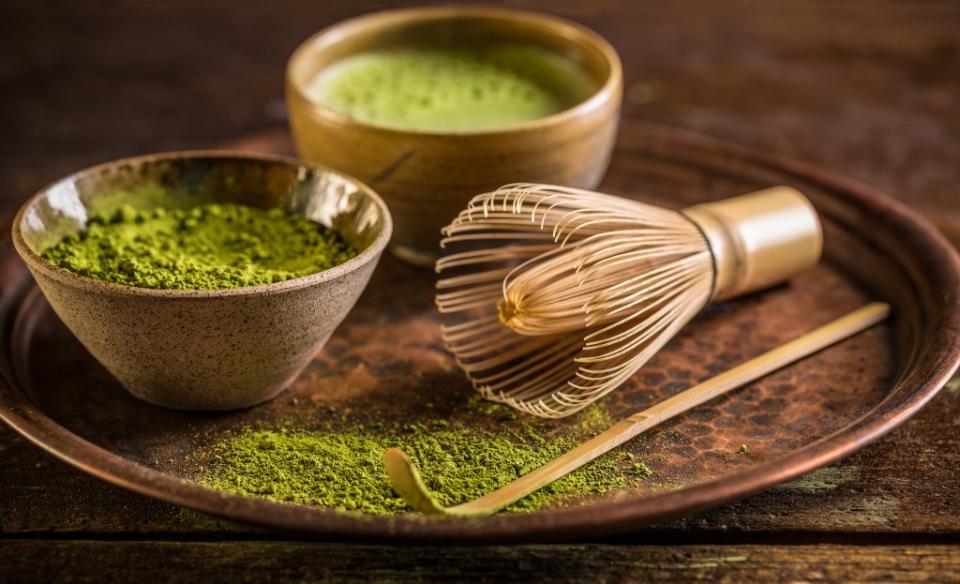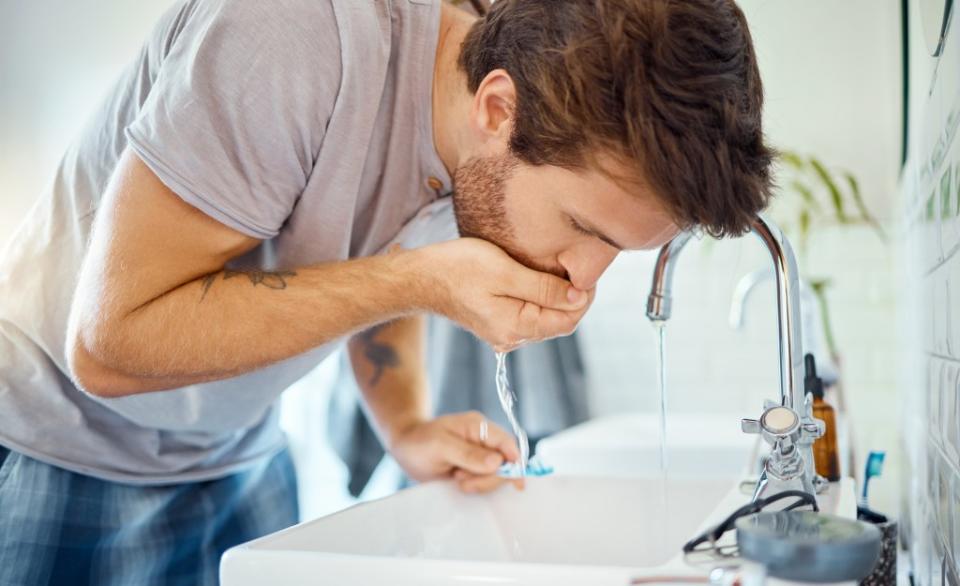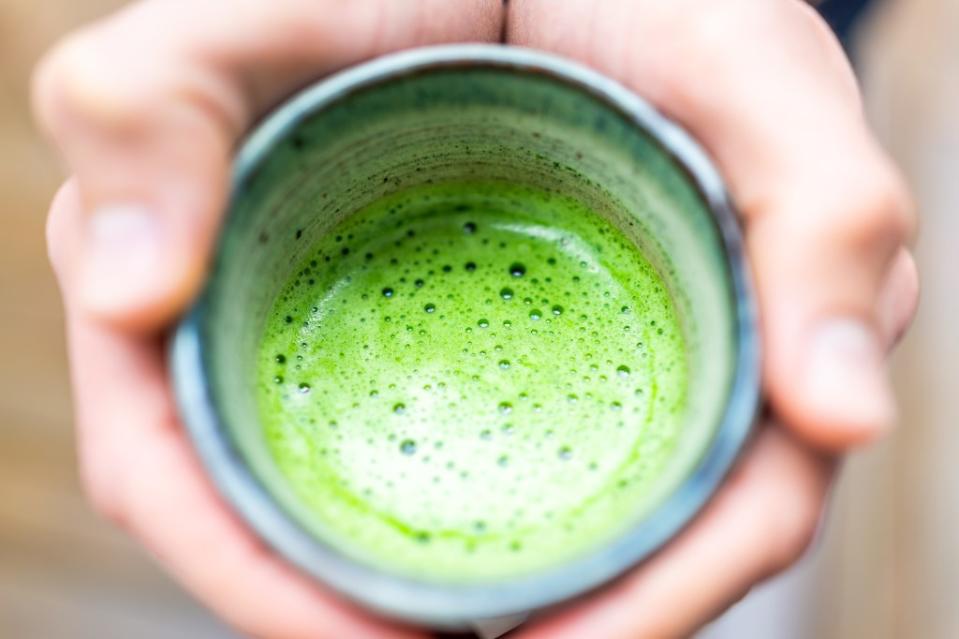Mouthwash made with this ingredient could be key to a healthy mouth

Just call it a matcha made in heaven.
Using matcha, a type of green tea, as a mouthwash could lead to a healthier smile, according to a new study.
Researchers in Japan used a mouthwash made with matcha extract and were able to inhibit the growth of P. gingivalis, a type of bacteria that causes periodontitis.

The study, published this week in Microbiology Spectrum, was conducted with just 45 people with chronic periodontitis. Participants were split into three groups and dissolved one of three powders into water to rinse their mouths. They either rinsed with barley, matcha or with sodium azulene sulfonate hydrate, which is used to treat inflammation. Everyone rinsed twice daily for a month and saliva samples were collected before and after the study.
Those rinsing with matcha had significantly lower levels of bacteria growth than the other groups.
“Matcha may have clinical applicability for prevention and treatment of periodontitis,” the authors wrote in the study.

Periodontitis can be a severe gum disease that attacks the tissues surrounding the teeth. When left untreated, it can eat away at the root of a tooth, causing decay or even tooth loss, according to Mayo Clinic. Luckily, it can be prevented with basic good hygiene habits, like brushing, flossing, regular cleanings and, now, maybe rinsing with matcha.
In addition to the clinical trial, the study also looked at the ability of matcha to kill the bacteria in a lab setting. Within two hours, almost all of the cultured P. gingivalis cells had been killed by the matcha extract and within four hours, everything had died.

What’s more, the researchers note, the matcha did little to wipe out strains of helpful bacteria in the mouth — meaning that it killed the bad while leaving the bacteria that’s necessary to have a healthy smile.
Matcha powder, a finely ground green tea that’s popular in everything from cookies to lattes, is already renowned for its polyphenol properties. Polyphenols are a particularly strong type of anti-oxidant, meaning they have many of the same benefits, like being able to fight free radicals and ultimately reduce oxidative stress, according to an article published in the Journal of Food BIochemistry.
The green powder, which originates from the Camellia sinensis green tea plant, has also been shown in previous studies to kill other types of bacteria, like E. coli. In general, green tea is also known for having a myriad of health benefits, including being linked to the prevention of cancer and cardiovascular diseases, lowering cholesterol and being anti-inflammatory as well as neuroprotective, according to a literature review published in the journal Chinese Medicine.

